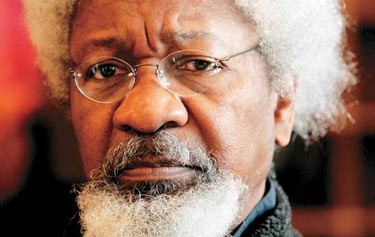On Wednesday, 13th July, 2022 in Abuja, Wole Soyinka Centre For Investigative Journalism (WSCIJ) launched Collaborative Media Engagement for Development Inclusivity and Accountability (CMEDIA) Project.
The launch was performed during the virtual 14th edition of the Wole Soyinka lecture series tagged “Can Democracy Work without a strong sub-national Media?”
The Executive Director, WSCIJ, Motunrayo Alaka who officially launched the CMEDIA) Project said that the Project supports 26 media organizations to execute investigative stories at the grassroots level, unmasked institutional and regulatory failures at the sub-national levels in the public and private sectors as well as pay attention to under-reported issues, places, and people in Nigeria.
She explained the thematic areas of the project which include Government (federal, state, and local), sector (private and public), people (women, minority, youths, and PWDs), issues (accountability, media independence, governance, and investigative stories).
“The project is about how to build the media that we want, and build the country that we want.
The Executive Director WSCIJ quoted Nelson Mandela as saying: “A critical, independent and investigative press is the lifeblood of any democracy.
“The press must be free from state interference. It must have the economic strength to stand up to the blandishments of government officials.
“It must have sufficient independence from vested interests to be bold and inquiring without fear or favour.
“It must enjoy the protection of the constitution so that it can protect our rights as citizens”.
Also speaking at the lecture series, the Deputy Director, MacArthur Foundation, Africa Office, Kole Shettima Shettima agree that democracy cannot thrive without a strong subnational media.
Mr. Shettima who was represented by Deputy Director, MacArthur Foundation, Olaide Oladayo said: “The dividends of democracy can only be delivered through strong sub-national media that can hold state and local governments accountable.”
He said some of the challenges Nigerian democracy is facing are insecurity and impunity, unaccountable political leaders, and highly-politicized governance culture where religion and ethnicity drive development planning and spending.
He stated further that the challenges are funding which is a major impediment facing the media which has made the media in Nigeria become dependent to government patronage, low investment on investigative journalism is also a problem, the State setting up media houses with the view of capturing the media space, the regulatory bodies focusing on the media organizations instead of making policies to strengthen the media and playing civic orientation roles.
He suggested that more Nigerians should invest in the media, it should not be left for donor agencies because lack of vibrant media organizations is dangerous to democracy. He also said that we should make case for cooperate bodies to invest in the media.
Earlier, the keynote speaker, the Vice Dean for Education and Academic Affairs, Johns Hopkins University School of Advanced International Studies, Dr. Chiedo Nwankwo stated that without a strong and viable media the masses will not enjoy the dividend of democracy.
She charged the media to rise up to the role of holding government accountable, agenda-setting and amplify the people’s voice at the community level, adding that efficient governance must be local, hence the need to build sub-national media for a robust engagement.
“The problem is that everybody is dealing with the National government, nobody is interested in the local government. There should redirect focus from the National to Local, establishing local radio and build their capacity”.
The Director General, Federal Radio Corporation of Nigeria, Mansur Liman in his brief comments said journalists need to create a balance between paying allegiance to the government and performing its civic responsibility.
“Both Public and private media must recognize that its role is one, and not think that there are issues that are untouchable, but report without fear.”
According to him, the need to get more Nigerians to invest in and strengthen the media organization due to its enormous role in democracy cannot be overemphasis.
Also speaking, the Executive Director, Gender Strategy Advancement International, Adaora Onyechere stated that the media should educate and empower women and other marginalized groups at the sub-national levels on issues that pertain to their rights.
“Lack of inclusion of women, youths and persons with disabilities is a result of the media inability to give these dissecting voices a voice”
“The media should bridge the gap between these vulnerable groups and policy makers. The media should step down literacy in some of the vital issues about the vulnerable group to the understanding of the people and the policy makers to enhance the implementation of the policies and programmes of government” she added.
She said: “Journalists need to hold government accountable as well as monitor service delivery in the community.”
She suggested that Community journalism is the only way forward, the rights and opportunities of women and persons with disabilities must be understood by them to equip them to ask the right questions. The voices of these vulnerable groups are very critical and they must heard for us to have a healthy democracy.
Similarly, Haruna Mohammed, a Co-publisher of WikkiTimes said Journalists must enhance their capacity to be able to report issues of people who are marginalized, especially people with disabilities whose voices are silent.
The founder and Editor-in-Chief, Foundation for investigative Journalism and Social Justice, Fisayo Soyombo said the public is in dark about their rights, and as such journalist must enhance their credibility in reporting investigative issues.
“Investigative journalism entails that all sides of a story are covered.
“There is a need for journalists to maintain a critical distance from those they are investigating,” Fisayo stated.
The virtual series was well attended by journalists, Civil Society Organizations, and official from private and public organizations.
CMEDIA is a multi-level intervention for media freedom and accountability of the government as reinforced by the MacArthur Foundation. It has 26 partner organizations with the aim of accelerating public enlightenment and the ecosystem for transparency, accountability and good governance and amplify marginalised voices especially at state and local government levels and the private sector.


